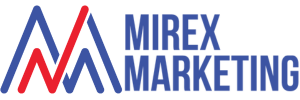“How Can I Get My Business To Appear In Search Results?”
Search Engine Marketing
Gilbert SEM Agency Serving Clients Nationwide
Organic & Paid Search Marketing Services
Search Engine Marketing (SEM)
Search Engine Marketing is the use of both Search Engine Optimization (SEO) and paid advertising (PPC+) to help your business appear in Search Engine Results Pages (SERPs).
Some marketing professionals have traditionally used the phrase “search engine marketing” synonymously with paid search advertising. This comes from an outdated trend to give the professional a similar title or abbreviation as the service itself. The Search Engine Optimization service, or SEO, was performed by an SEO, or Search Engine Optimizer. Yet, the abbreviation for paid search advertising was PPC for Pay-Per-Click, and ad campaign managers did not want to be known as “Pay-Per-Clickers”, so they called themselves SEMs for Search Engine Marketers. However this is confusing since “marketing” can imply the use of both earned and paid media to promote your business.
Mirex Marketing follows the more traditional use of the word “marketing” and considers Search Engine Marketing (SEM) to be both Search Engine Advertising (SEA), and Search Engine Optimization (SEO). (SEM = SEA + SEO). Furthermore, the use of the label PPC for “pay-per-click” advertising is also becoming outdated, since there are now digital advertising platforms that allow the advertiser to pay for other high-value actions besides clicks. Mirex Marketing will therefore abbreviate digital advertising as PPC+, for “pay-per-click plus”, as in clicks plus other high-value actions.
Why you want Search Engine Marketing:
Get Inbound Leads From An In-Market Audience
Leads from search engines, both paid and organic, are usually higher quality than leads from other sources and usually have a higher close rate. The leads are inbound, which means the customer came to you (you didn’t have to reach out to them). Inbound leads cost 61% less than oubound leads, and have a 14% close rate compared to a 1.7% close rate for outbound leads. Internet users who go to a search engine are often an in-market audience, meaning they are ready to buy what you have to offer. 93% of online experiences begin with a search engine, and over 90% of the time the search engine is Google. Ranking on the first page of search engine results gives your business near-instant credibility for the customer. (Local businesses with a brick-and-mortar store or geographic service area must also build and maintain a competitive review profile, see Local Marketing below).
The Google Ads platform has the most sophisticated targeting capabilities of any other marketing platform, and they have better reach than any other marketing platform.
Search Engine Marketing is arguabily the first and the best way to promote your business, and any business owner who can’t recognize that will probably be left in the dust by their competitors who are actively using search engine marketing. (Stats by Search Engine Journal)
The phrase “search engine marketing” might mean different things to the layperson and to digital marketing professionals. Within the industry “search engine marketing” is often synonymous with “pay-per-click” advertising on search engines, the most dominant being Google. Yet the traditional use of the word “marketing” means much more than just advertising; so the layperson may interpret “search engine marketing” to mean any use of search engines, both paid and organic, to promote their business. Mirex Marketing considers Search Engine Marketing (SEM) to be both Search Engine Advertising (which we would coin as SEA), and Search Engine Optimization (SEO). (SEM = SEA + SEO). Further, the use of the label “pay-per-click” advertising is also becoming outadated, since there are now digital advertising platforms that allow the advertiser to pay for other high-value actions besides clicks. Mirex Marketing will therefore often abbreviate digital advertising as PPC+, for “pay-per-click plus”.
Get Started Now!
Would you like your business to appear in search engine results?
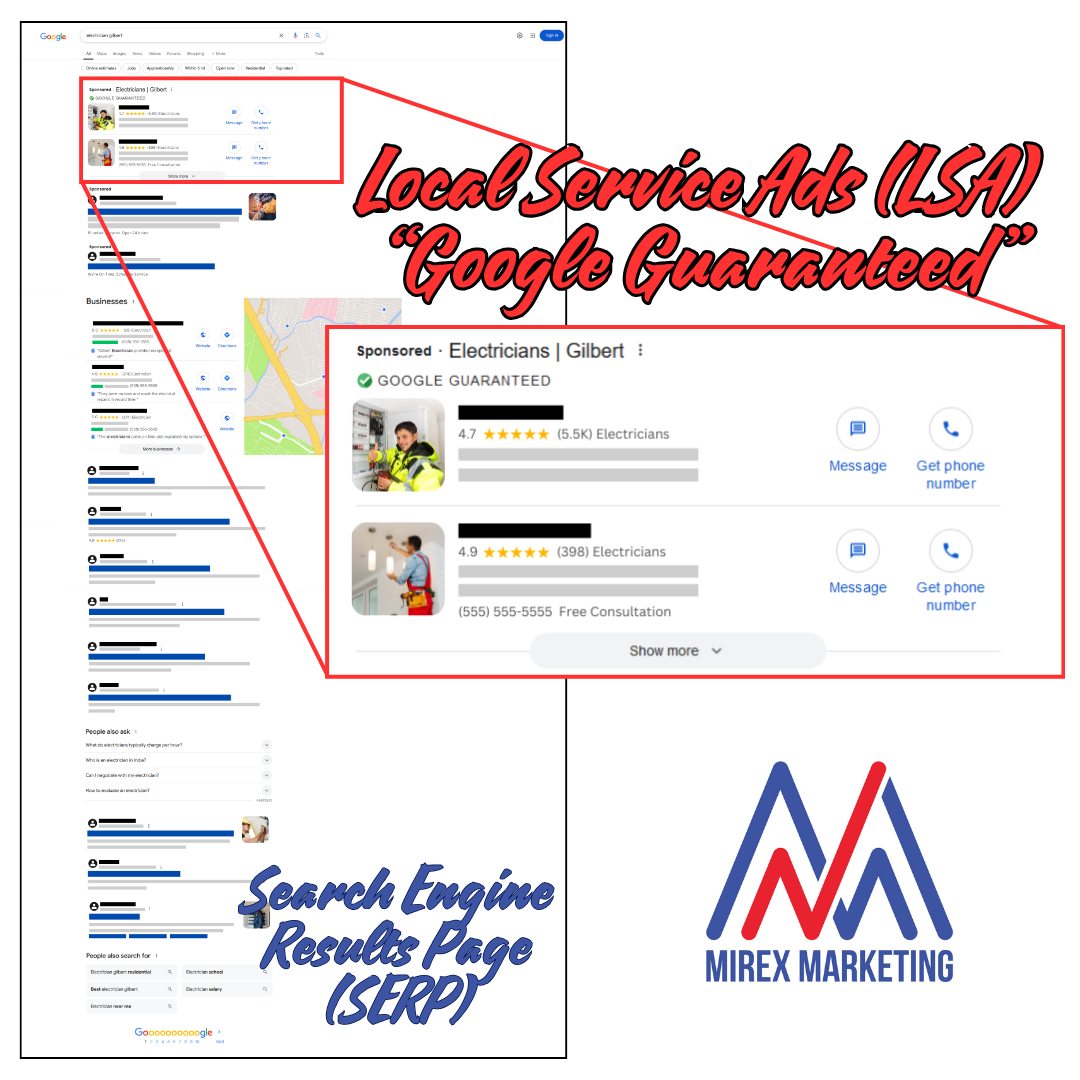
Google Local Services Ads (LSA) Management
Google Local Services Ads (LSA) is traditionally for home service businesses, but is also now open to a few other categories. Local Services Ads is also known as the “Google Guaranteed” program, because Google will verify that the proper business structure and licenses are in place, and for some businesses they will even insure the service provided up a certain amount. They will label these ads as “Google Guaranteed” (when insured) or “Google Screened”. When relevant to the user’s search query, these ads are the very first results that will be displayed in Search Engine Results Pages (SERPs). They are pay-per-call ads (and per message, and per booking in some cases). Advertisers may choose to manage these ads on their own or hire an agency, such as Mirex Marketing to manage them.
Google Ads Management, Search Engine Advertising (SEA) or Google Adwords PPC+
Google Smart Campaigns (formerly Google Adwords Express) is intended to be the DIY version of Google Ads (formerly known as Google Adwords). It uses a simplified interface and less sophisticated targeting. Google Smart Campaigns are the default when a business owner agrees to advertise from a link on their Google Business Profile. For business owners who do not want to manage Smart Campaigns on their own, Mirex Marketing has a low budget ad management option.
Professional management of Google Ads, including the service provided by Mirex Marketing for standard campaign budgets and above, will make use of the more advanced interface which includes better bidding and targeting features, as well as conversion tracking.
The Google Ad Network does not only include text ads in search engine results. They also have an extensive display ad network where they claim to reach 90% of the internet, and Google owns YouTube where video ads are also delivered (see YouTube Ads below). Nonprofit organizations should explore the Google Ad Grant.
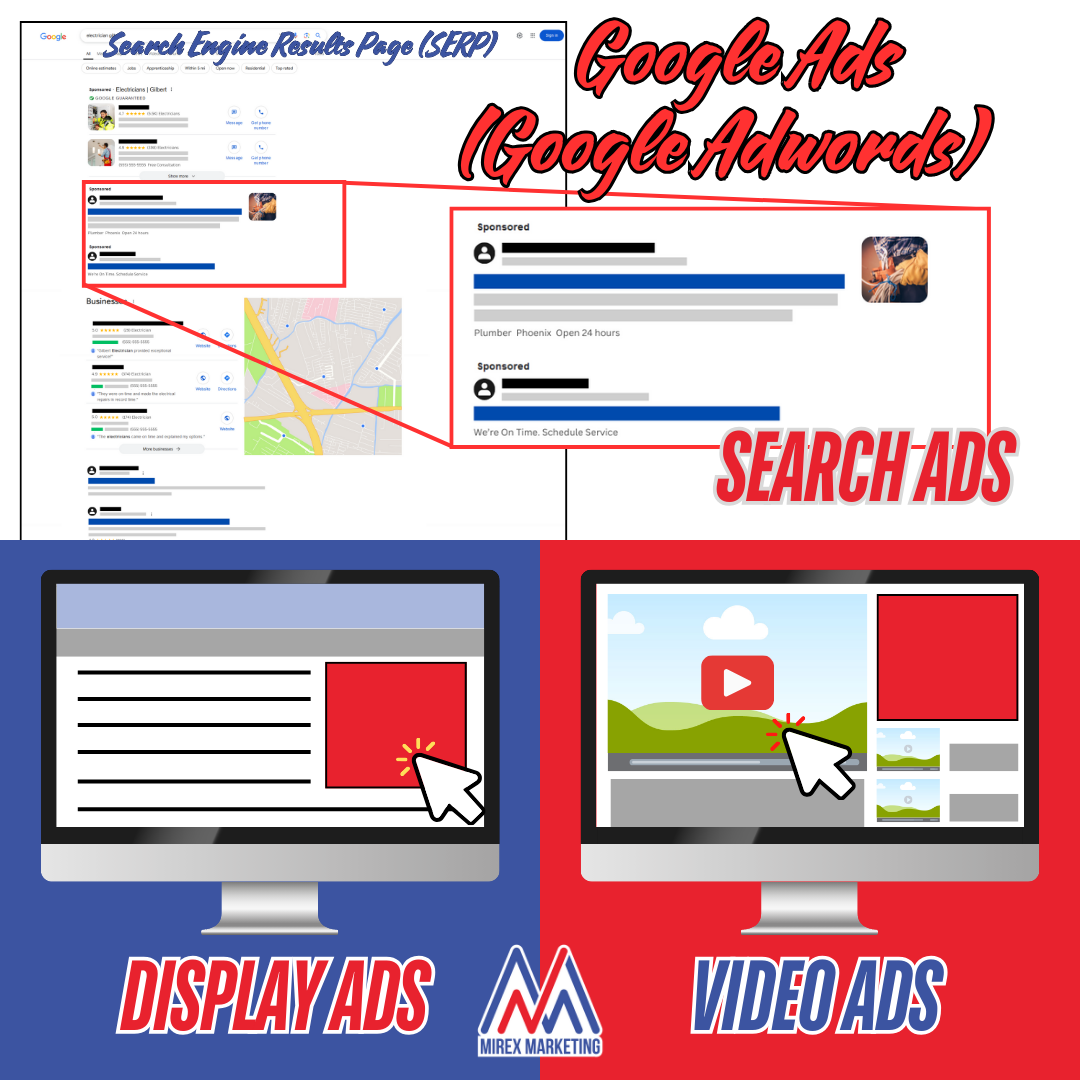
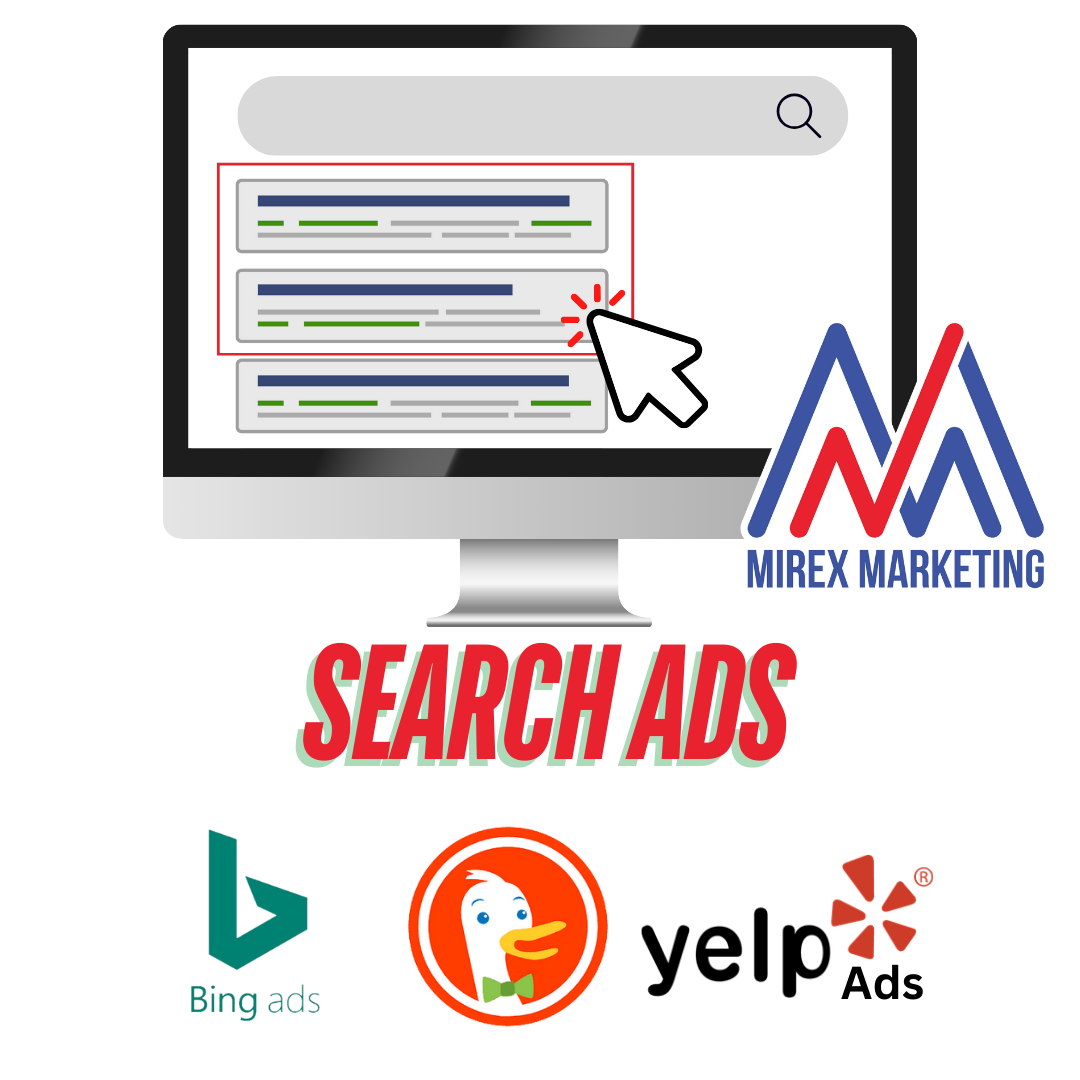
Bing Ads, Yahoo Ads, DuckDuckGo Ads, and Advertising Management on other search engines. (Search PPC+)
Google dominates the search market with over 80% of internet users using Google for searches (over 90% by some reports). Yet, there could be reasons for exploring other search engines, such as using them in addition to Google Ads for more leads, exploring alternatives for when Google Ads is over-saturated in your industry, or for when a particular search engine is better for your niche. Technically any site with a search feature might be considered a search engine (or it is powered by one of the more common search engines). While YouTube is actually the second-most popular search engine (see YouTube SEO & PPC+ below), the next most-considered traditional search engines are Bing, Yahoo, and DuckDuckGo (All part of the Microsoft Ad Network). Local business directories, such as Yelp, are technically local search engines and many of them also have advertising available. Campaign management for each of these platforms is available from Mirex Marketing.
Local Marketing & Reputation Management (Starter SEO or Local SEO & Review Generation)
The first organic results of local search queries will be the “Local Pack”. These links are accompanied by a map, business reviews, and icons which prompt the user to call the business, get directions or visit the business website. This is the modern “Yellow Pages”, and just like every business from the 80s and 90s needed to be in the phone book, every local business needs to be in the Local Pack now, or customers will not know you exist or be able to contact you. (A “local” business is one that has a physical location for customers to visit or provides onsite services within a specific geographic area).
The Local Pack is where an estimated 80% of users will click on links, and more than that, they will only click on the businesses that have competitive review ratings (generally 4.8 or higher out of 5 stars). Mirex Marketing has a “starter SEO” package that focuses on the most important ranking factors for local pack ranking and it includes review generation.
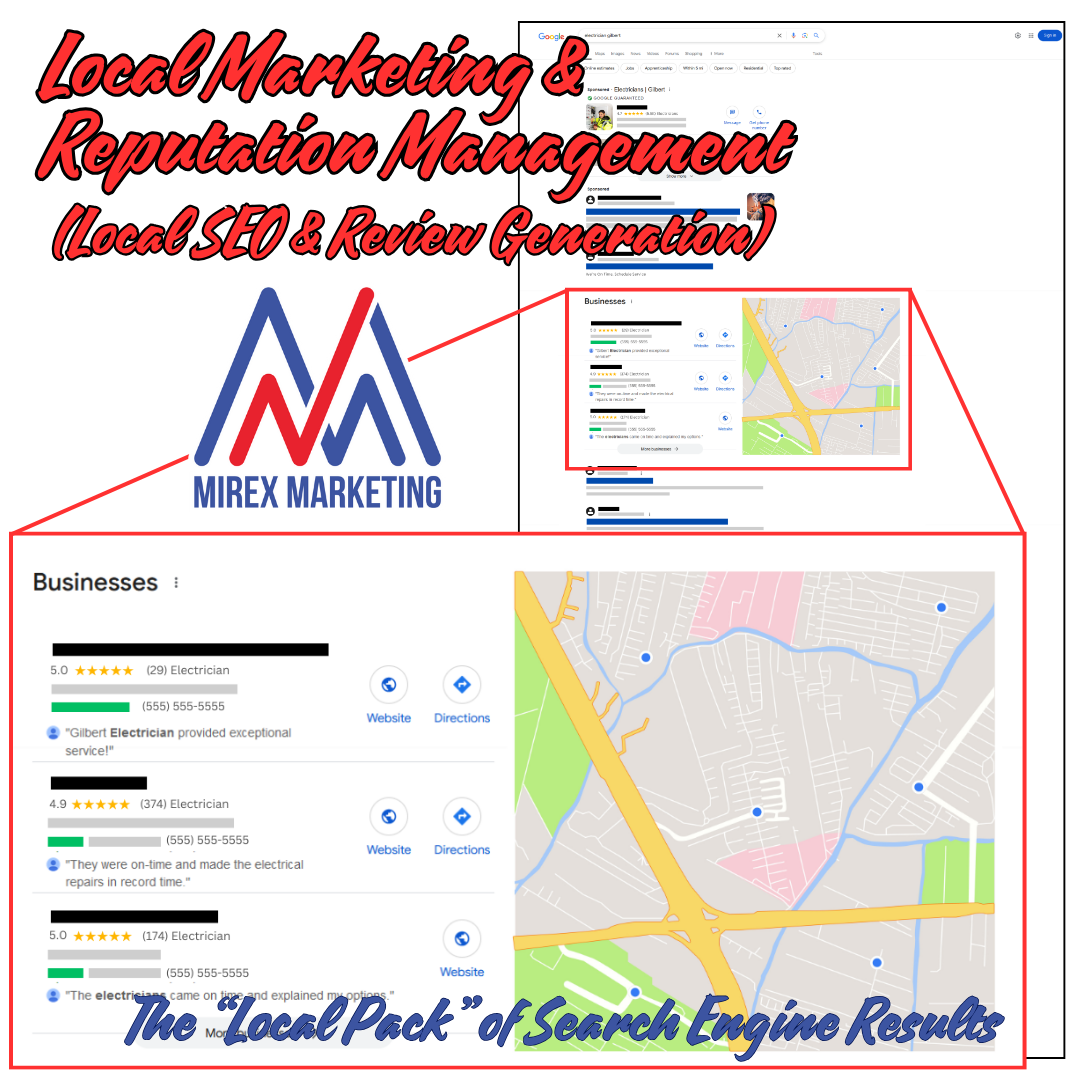
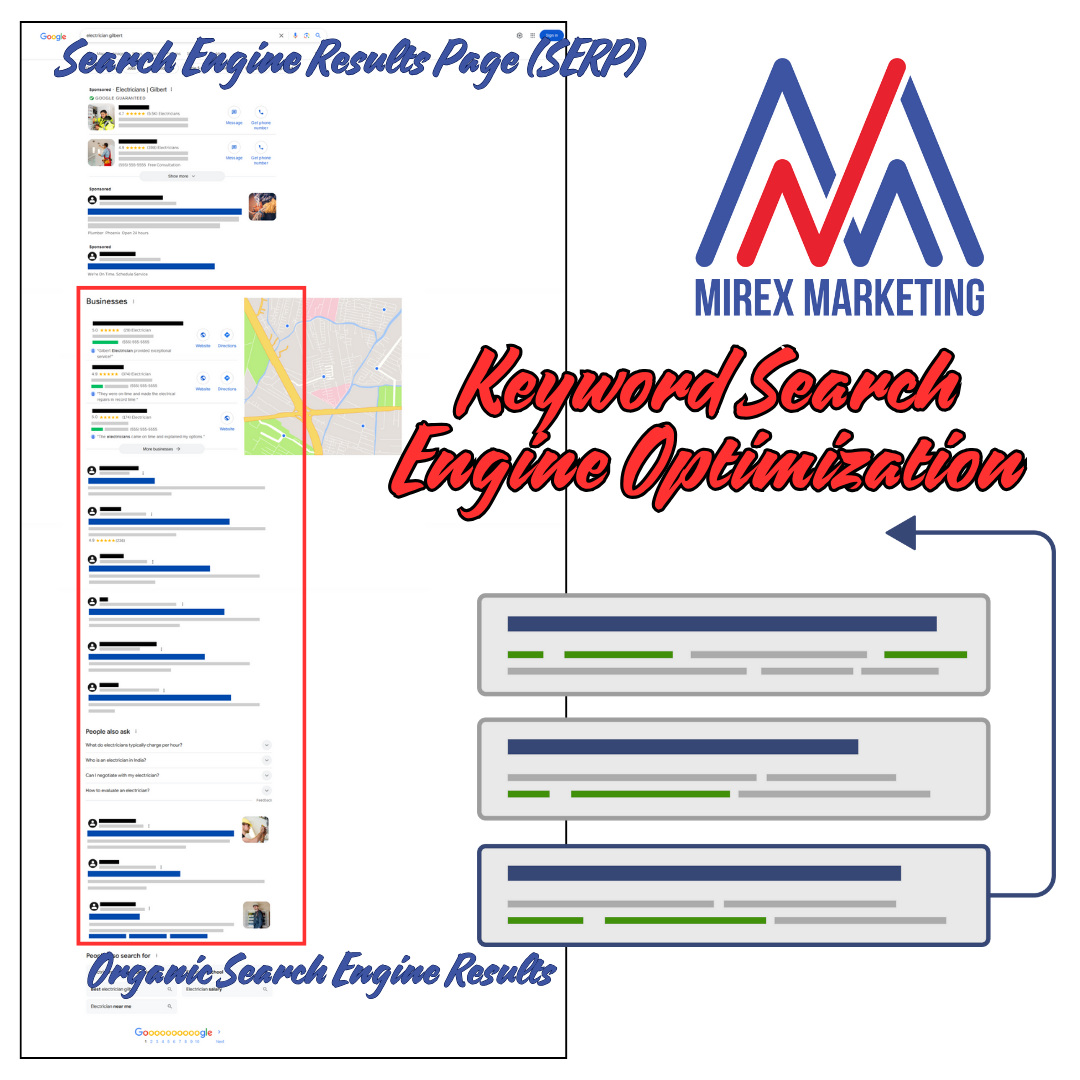
Keyword-Ranking Search Engine Optimization (Keyword SEO)
Search Engine Optimization is the process of getting your business, or more specifically your business website, to rank in the organic (non-paid) results. Users will not usually explore past the first page of search engine results unless they can’t find what they are looking for on the first page. That means that if you want your business to get organic leads from search engine results, it has to rank on the first page for relevant keywords or search queries.
The advent of AI is changing search engines in a dramatic way. For queries where users are seeking answers to questions, the search engine’s AI will often answer the question for them, making it so that the user does not have to explore any further. This makes content-based marketing strategies more challenging since the AI is helping users skip the consumption of content. Some might argue that this decreases the importance of search engine optimization as a service, but it actually increases the importance of it. The AI machine needs correct data in order to create an accurate summary for the user; so good data and accurate, authoritative content is more now important than ever. Also, AI summaries only apply when the user has entered a question-based inquiry. When they are seeking a product, service, brand or business, the results will still show them the appropriate results, and they will most likely pick from the results on the first page.
YouTube Search Engine Optimization (YouTube SEO)
YouTube is the second-most popular search engine, getting more searches per day than all other search engines combined (except Google, and it happens to be owned by Google). Quality video content published on YouTube will not only increase your chances of ranking for relevant search queries on YouTube, but the videos can also appear in Google search results.
The video description and other data that are published with the video will give both YouTube and Google more to index and display in search results.
Embedding the video on your website after it has been published on YouTube also improves the SEO of your website, because users are more likely to stay on the page longer and engage with the page. The simple click of playing the video allows the user to do something more than just visit the page and then click away to go somewhere else (this is an indicator of engagement). Videos improve the user experience on your website because most people would much rather watch a video than read.
As a video platform, a YouTube strategy would include video production, which can have a wide range of budgets from free on your own phone to commercial-grade video production. (See also the Shorts, Stories & Reels Video Production service which can be integrated into an overall YouTube marketing strategy and Video Production in general).
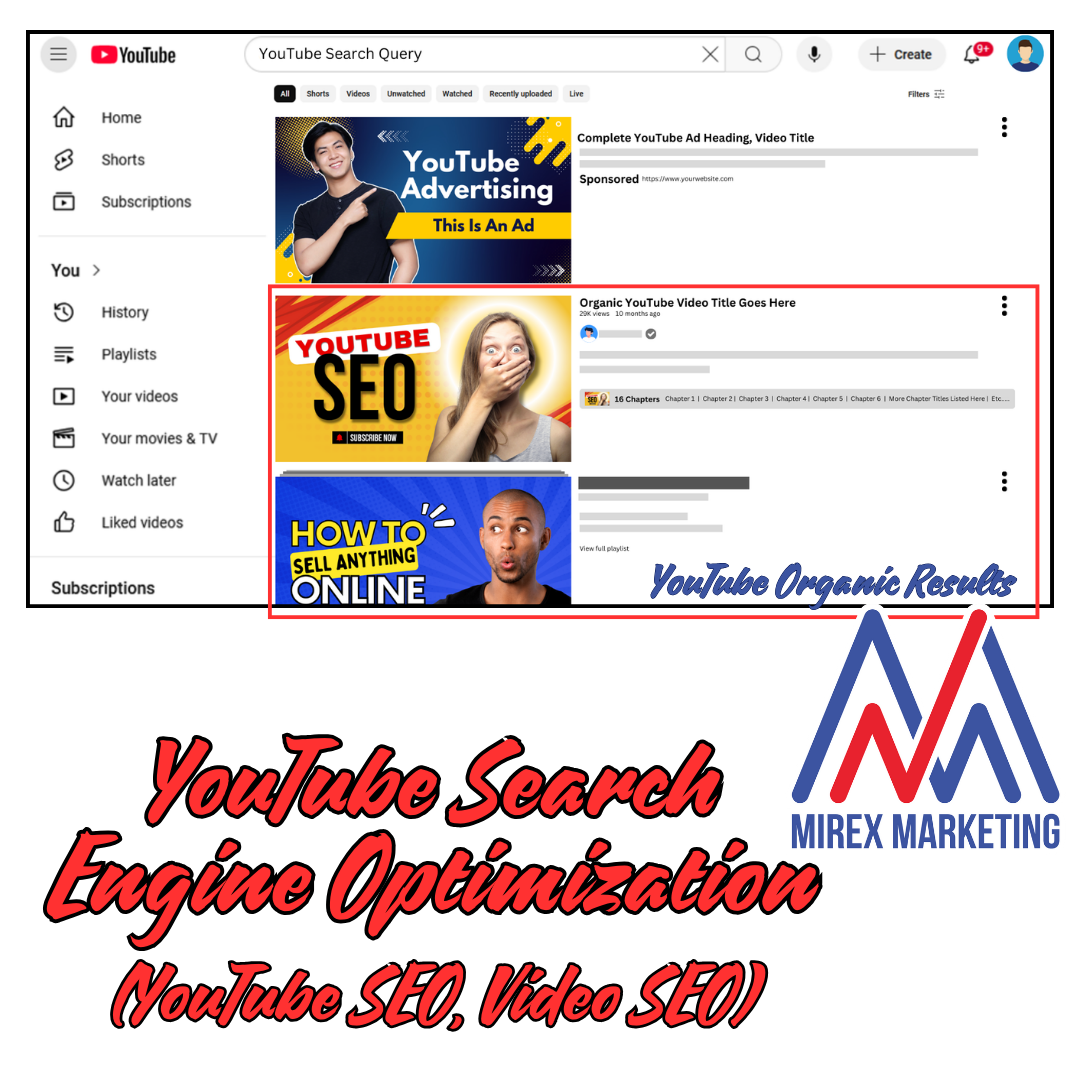
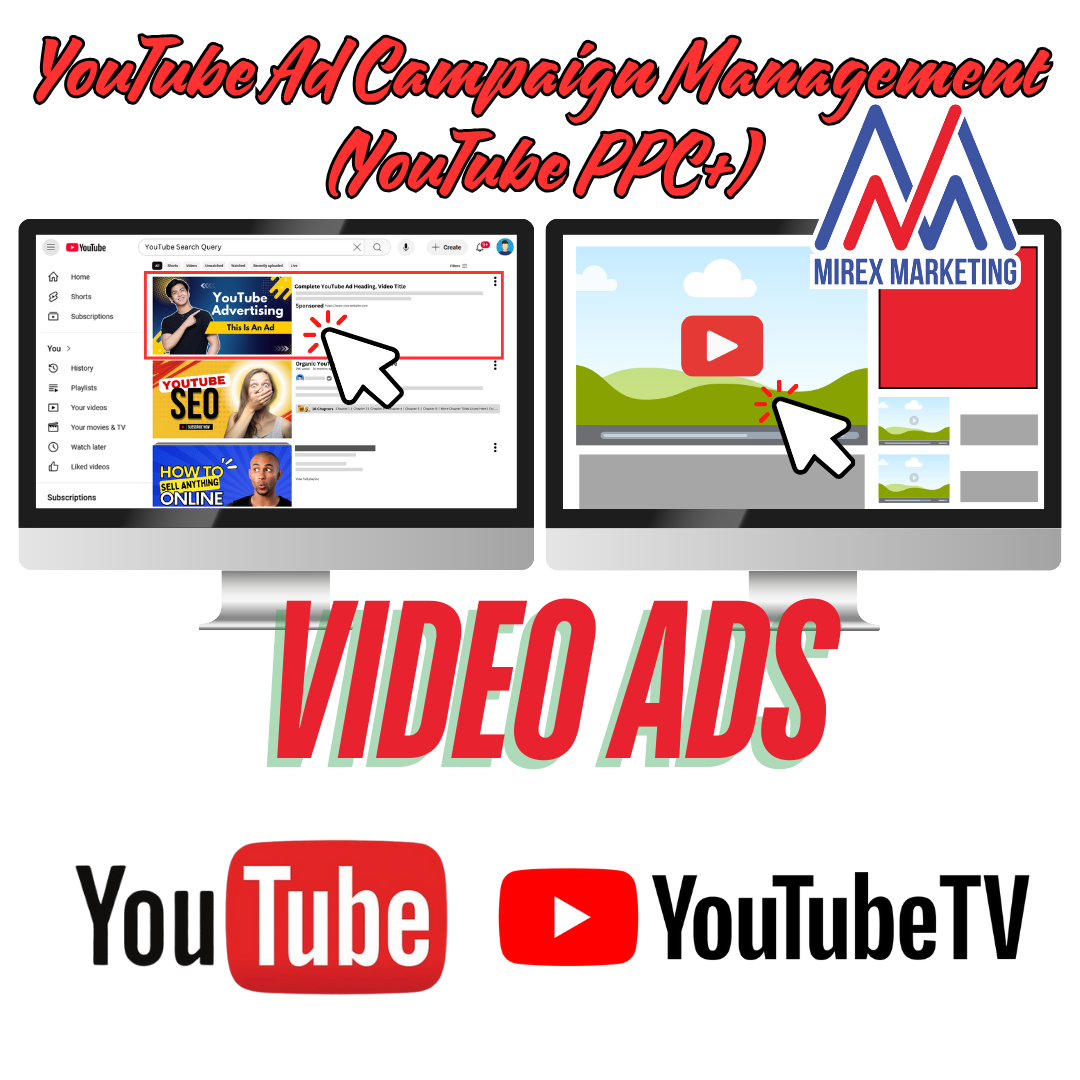
YouTube Ad Campaign Management (YouTube Ads or YouTube PPC+)
Video and display advertising on YouTube and YouTube TV is part of the Google Ad network, and leverages Google’s sophisticated targeting and bidding capabilities. It also includes conversion tracking when set up properly. (This is one of the reasons to have Mirex Marketing manage your ad campaigns; we always set up conversion tracking when its available with the platform).
Video ads can be used for both awareness and leads campaigns. Awareness campaigns are useful (or necessary) for when your product or service does not have a high search volume, and/or for when you want customers to search for your brand by name, and not just perform generic searches for what you and your competitors offer. Most of the time if they have searched for your brand by name, they have already decided to buy from your business.
